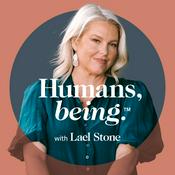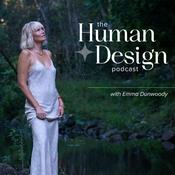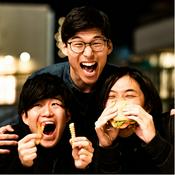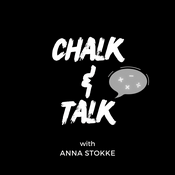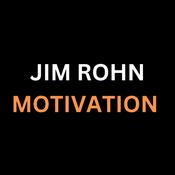190 episodes
Fighting in the Arctic: America's Arctic Angels - WO2 William McGovern and SGT Nathan Groen
07/12/2025 | 46 mins.“One foot in the snow, here we go.”
In this week’s episode, the host sits down with WO2 Will McGovern (2/14 Light Horse Regiment) and SGT Nathan Groen (1st Battalion, the Royal Australian Regiment) to explore their recent deployment to Alaska as Observer-Trainers with the 11th Airborne Division’s “Arctic Angels.” SGT Groen is the Direct Fire Support Weapon’s Platoon Sergeant at 1 RAR and WO2 Will McGovern is a Squadron Sergeant Major at 2/14 LHR. In January 2025, they supported the 11th Airborne Division’s rotation through the U.S. Army’s newest Arctic combat training centre, Joint Pacific Multinational Readiness Center (JPMRC), designed to test war-fighting capability in one of the harshest environments on Earth.
H-hour was at 0001 on 23 January 2025 with a large-scale airborne insertion: paratroopers from the 2nd Infantry Brigade Combat Team (Airborne) jumped from C-130s and C-17s into Army Allen Airfield and Drop Zone Buffalo. Their mission: seize and secure the airfield, establish a foothold against not just an opposing force but one of the most unforgiving climates imaginable. Temperatures plunged below –35 °C as soldiers fought to gain positions, build defensive works, and operate under deep snow and arctic winds.
WO2 McGovern and SGT Groen explain how they were selected for this rotation, how they integrated with an allied formation and contributed as Observer-Trainers, and where they as the two Australian on the exercise tried to add insight in the joint, multinational context. They reflect on the logistical challenge of sustaining operations in sub-zero conditions, the physical and mental strain on troops, and the adjustments required in tactics, movement, and sustainment to remain effective when the environment is as lethal as the enemy.
Beyond the drop and snow-covered patrols, we dive into what Arctic warfare demands: from cold-weather equipment and sleep systems, through mobility on snow and skis/ahkios, to the scale of U.S warfighting. JPMRC 25-02 isn’t just a rotation — it’s part of a broader push by the U.S. Army and its allies to re-learn Arctic warfighting skills lost in two decades focused on counterinsurgency.
This episode offers a rare window into modern Arctic combat training — combining parachute assaults, joint multinational forces, and the brutal test of sub-zero environments. For planners and leaders in Australia’s Army, it’s a prompt to ask: are we ready to fight in the world’s harshest environments?
—————————————————————————
Subscribe to The Cove Podcast to make sure you do not miss out on any of the heavy-hitting content we have planned.- ‘[W]hat we're trying to do is restore what has been a loss of trust for a number of reasons over the recent decade or so between generals and rank and file to be frank ...’
In this week’s episode, CAPT Todd Lempa sits down with Major General Chris Smith, the Deputy Chief of the Australian Army, to discuss command responsibility and the uncomfortable question of how armies — including our own — hold senior leaders to account. Building on his earlier episode on Warrior Culture, MAJGEN Smith reflects on the Australian Army’s struggle, common across many militaries, to recognise and act on professional failure or a lack of success at senior levels. Drawing inspiration from Thomas Ricks’ The Generals, he explores how accountability in command has eroded over time and what that means for trust and confidence in the profession of arms.
We examine the 2012 Camp Bastion attack in Helmand Province, where Taliban fighters infiltrated the perimeter, killing two US Marines, wounding several others, and destroying or damaging eight USMC AV-8B Harrier aircraft — one of the most significant single-day losses of American airpower since Vietnam. The breach occurred after elements of the UK-led security force thinned out perimeter manning to support operations elsewhere. While no British officers were held to account, the United States Marine Corps relieved two generals of command following the attack. MAJGEN Smith uses this event to frame a discussion on vicarious responsibility, arguing that senior leaders sometimes need to step aside — not because of personal culpability, but to restore trust and confidence in their institution.
He acknowledges that the Brereton Inquiry put a lot of attention on the NCOs and troops, but that no senior leaders were held to account. In his view, this reveals a broader failure to uphold the principles of command responsibility that underpin the trust soldiers place in their leaders. Across the episode, MAJGEN Smith challenges senior leaders to confront a hard truth: that leadership accountability cannot stop at the tactical level if the profession is to maintain legitimacy, trust, and moral authority.
—————————————————————————
Subscribe to The Cove Podcast to make sure you do not miss out on any of the heavy hitting content we have planned. - ‘It was grinding on me day in, day out—patrolling, heat, and loads I wasn’t built for.’
In this week’s episode, CAPT Todd Lempa sits down with WO2 Tavis Nicholson, the Warrant Officer Physical Training Instructor (PTI) at the Royal Military College – Duntroon (RMC-D), for a follow-on conversation expanding on his earlier episode, Beyond Snake Bites: The Evolution of Army Physical Training. This time, we move past concepts and dig into the practical reality of how to programme physical training intelligently across Army — not by guesswork, but by understanding the science and applying it tactically.
WO2 Nicholson starts by breaking down the foundational physical qualities soldiers actually need to perform: strength as the base of load carriage and durability; aerobic capacity as the silent engine behind every long patrol and recovery cycle; and the role of strength endurance, anaerobic capacity, and power layered on top. Drawing on Bondarchuk’s exercise classifications and years of coaching experience, he explains how units can move away from ‘one size fits all PT’ and instead build training around what soldiers actually lack — using ability-based grouping to tailor strength, aerobic, and endurance work without losing cohesion or tempo.
We explore why methods like Repetitions in Reserve (RIR), Rate of Perceived Exertion (RPE), 1 Repetition Maximum (1RM) lifting, Maximal Aerobic Speed intervals, threshold running, and Zone 2 work differently for different soldiers, and why sequencing sessions correctly matters more than any individual exercise. WO2 Nicholson then talks to what he calls Avatars, scientifically backed Employment Classification profiles that describe where each trade in Army should dedicate their time at PT, contrasting a Rifleman with a Vehicle Mechanic.
Whether you’re a section commander looking to better understand your unit PT program, a platoon sergeant trying to reduce injuries, or an officer wanting to understand how to get the most out of your teams in-the-field and on operations, this episode provides the practical tools needed to build soldiers who can perform under pressure, recover quickly, and stay in the fight.
—————————————————————————
Subscribe to The Cove Podcast to make sure that you do not miss out on any of the heavy hitting content we have planned.
Resources:
Little Black Book of Accessory Methods & Workouts - ‘If an adversary is operating in a highly enabled headquarters and we’re not, we will fall behind instantly ...’
In this week’s episode, the host sits down with MAJ Tom Berry, a Signals Officer posted to Headquarters Joint Operations Command (HQJOC), to unpack the realities of jamming, machine learning, and the future of command-and-control on the modern battlefield. Building on a recent episode titled Tactical Communications with CAPT Jack Virtue, this conversation shifts from line-of-sight and beyond-line-of-sight communications to the complex world of electronic warfare, adaptation, and decision-making advantage.
We break down the assumptions many of us still hold about jamming — including the belief that enemy EW will simply “switch off” our command posts and force us back to maps and talcs. MAJ Berry explains why jamming rarely works like that, how most systems retain offline data even when real-time feeds are denied, and why jamming is a double-edged sword that exposes the emitter as much as the target. From GPS and SATCOM spoofing to tactical-level EW effects and A2/AD systems, he outlines the conditions, power requirements, and vulnerabilities that determine how and when jamming is actually effective.
The episode then explores mesh networks, distributed architectures, and what resilient, reconfigurable communications webs can offer a formation — and their limits. We discuss why mesh networks reduce bandwidth stress on BLOS communications, how they support tempo, and why even the best mesh still depends on a reliable BLOS hop.
Finally, we dive into machine learning and its role in enabling commanders and staff. MAJ Berry explains how ML helps find “needles in haystacks,” reduces the staff effort required to decypher useful information, and gives command post staff and commanders the space to create shock, surprise, and decision advantage. We also examine the tension between a commander’s information requirements and the creeping “1000-mile screwdriver” — what leaders need to see versus what they want to see.
This episode challenges long-held assumptions about jamming and machine learning — and argues that if we consistently drop to map-and-compass we will be left behind by those armies embracing machine learning to accelerate their decision-making speed.
—————————————————————————
Subscribe to The Cove Podcast to make sure that you do not miss out on any of the heavy hitting content we have planned. South Sudan to Line Creek: The Adaptation of Combat Integration - WO1 Chris Sharp
02/11/2025 | 52 mins.‘'[T]here were .50 cal rounds coming off of Technicals that were ripping through the accommodation buildings…’
In this week’s episode, CAPT Todd Lempa sits down with Warrant Officer Class One Chris Sharp, Regimental Sergeant Major of the 1st Armoured Regiment, to talk about Operation ASLAN, getting selected as the RSM of the Army’s first Combat Experimentation regiment and training soldiers in Africa to transforming an armoured regiment at home, WO1 Sharp’s story is one of challenge, adaptation, and belief in people over platforms.
He reflects on his deployment to South Sudan on Operation ASLAN, where he served as a Training Warrant Officer embedded with the United States military, navigating the complexities of operating alongside multinational partners in one of the most demanding environments on Earth. Returning to Australia, he learned he’d been selected as the RSM of the 1st Armoured Regiment — a proud moment quickly tempered by peers questioning whether he was going to a “real armoured combat regiment.”
What followed was an exciting and fast paced change. He began 2025 watching every armoured vehicle in the compound loaded onto trucks and driven away, leaving behind an empty regiment compound. But by the end of the year, his soldiers had delivered one of the standout performances of Exercise Talisman Sabre 25, using uncrewed aerial systems, armed First Person View (FPV) drones, and automated M113s to outmanoeuvre and outthink the enemy party. The result was not just tactical success — it was a cultural one, with soldiers begging to stay in the unit they had helped reinvent.
This episode captures what leadership looks like when tradition meets transformation — how an RSM can build pride, purpose, and lethality in an era where the definition of “armoured” is changing fast.
—————————————————————————
Subscribe to The Cove Podcast to make sure that you do not miss out on any of the heavy hitting content we have planned.
More Education podcasts
Trending Education podcasts
About The Cove Podcast
The Cove Podcast brings you candid, unfiltered conversations with the leaders, soldiers, and scholars shaping the Australian Army today. Each week, our host CAPT Todd Lempa sits down with uniformed officers and soldiers leading the change in the Australian Army as well as academics and international partners to unpack what modern warfare demands.
From redefining leadership and resilience in the modern Army to exploring lessons from combat operations, command culture, human performance, and the future of land power, The Cove Podcast reveals how the Australian Army thinks, learns, and fights. Whether it’s a Regimental Sergeant Major reflecting on combat, a general discussing Warrior Culture, or a psychologist unpacking mental readiness—each episode delivers a grounded look at the people and ideas driving the Australian Army forward.
Insightful, grounded, and authentic — this is where the Australian Army thinks out loud.
Podcast websiteListen to The Cove Podcast, SOLVED with Mark Manson and many other podcasts from around the world with the radio.net app
Get the free radio.net app
- Stations and podcasts to bookmark
- Stream via Wi-Fi or Bluetooth
- Supports Carplay & Android Auto
- Many other app features
Get the free radio.net app
- Stations and podcasts to bookmark
- Stream via Wi-Fi or Bluetooth
- Supports Carplay & Android Auto
- Many other app features

The Cove Podcast
Scan code,
download the app,
start listening.
download the app,
start listening.






